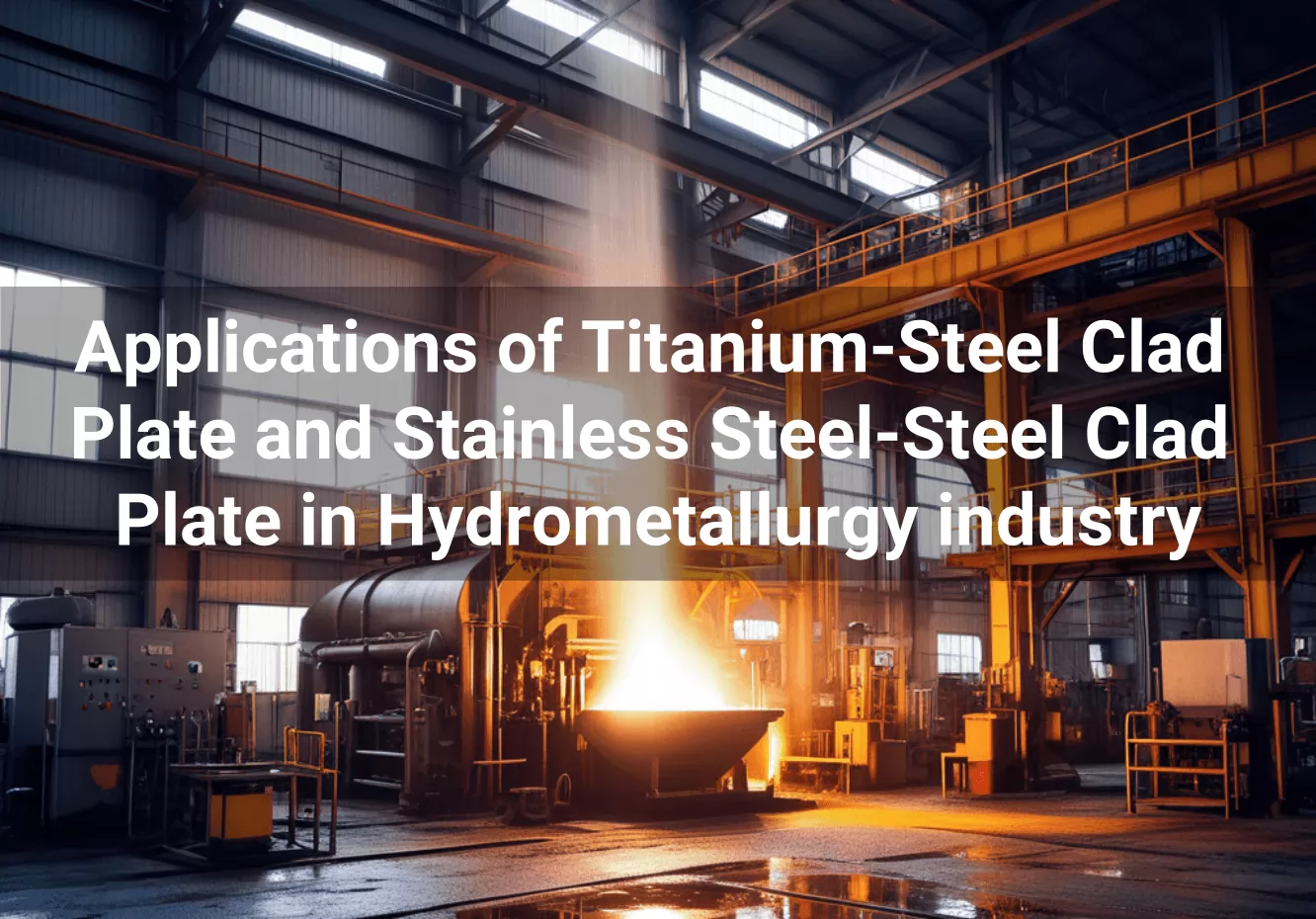


In hydrometallurgical processes, corrosion is a significant challenge due to the presence of highly acidic environments, elevated temperatures, and aggressive chemical agents. Operations such as leaching, solvent extraction, and electrowinning subject equipment to extreme mechanical and chemical stresses, necessitating the use of materials with exceptional durability and resistance to corrosion. Titanium-steel and stainless steel-steel clad plates are frequently employed to address these challenges, particularly in key equipment like reactors, acid storage tanks, and heat exchangers.
The acidic environments of hydrometallurgy often lead to severe forms of corrosion, including pitting, intergranular corrosion, and stress corrosion cracking. Additional complications arise from abrasive slurries and turbulent flow conditions, which exacerbate material degradation. Given these factors, the selection of construction materials is critical to ensuring the reliability and longevity of processing equipment.
Clad materials, such as titanium-steel and stainless steel-steel clad plates, are highly effective in overcoming the corrosion and mechanical challenges of hydrometallurgical processes. These composite materials combine the superior corrosion resistance of the clad layer with the structural strength and cost-efficiency of the base layer.
Stainless steel-steel clad plates are a popular choice in hydrometallurgy due to their affordability and excellent resistance to acidic environments.
Titanium-steel clad plates are the material of choice for the most demanding hydrometallurgical applications, particularly where strong acids and elevated temperatures are present.
While stainless steel-steel clad plates are more cost-effective upfront, they deliver reliable performance in moderately corrosive environments. For extreme conditions, titanium-steel clad plates, though more expensive initially, offer superior durability, significantly reducing maintenance and replacement costs over time.
Choosing the right clad material depends on the specific operational conditions. Stainless steel-steel clad plates provide a practical and economical solution for most hydrometallurgical processes, while titanium-steel clad plates are indispensable for handling severe corrosion risks. By leveraging the advantages of these materials, hydrometallurgical facilities can enhance equipment reliability, optimize performance, and minimize long-term operational costs.



Fugo Tech is focused on the manufacturing of clad metal plate and distributes the Stainless Steel, Titanium, Nickel Alloy, Zirconium and other non-ferrous metal pipes, fittings, flanges, and fasteners.